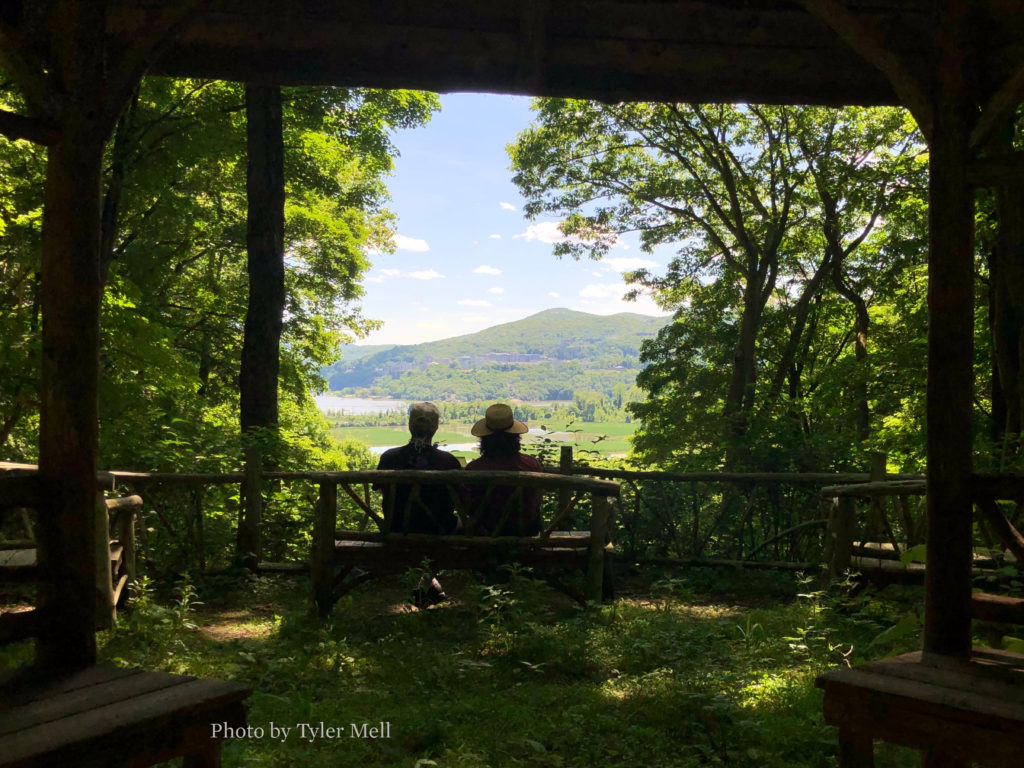In Time of Hardship, Boscobel Focuses on Giving and Expanding

Cultural Institution Finds New Ways of Serving its Community, Now and in Future
FOR IMMEDIATE RELEASE (Garrison, NY – July 2020) – Throughout the pandemic, Hudson Valley gem Boscobel House and Gardens has found new ways to thrive and serve its community.
“As soon as we realized that it would be some time before we could open our gates as wide as we’d like, we started to think about what we could do to contribute to our community during quarantine. Focusing first on the selfless healthcare workers who risk so much for the greater good, we opened up our gardens and grounds for one-household-at-a-time, free respite visits for healthcare workers,” says Director of Visitor Engagement Ed Glisson.
Boscobel is an ideal place to take a well-earned deep breath. As respiratory therapist Margaret Degan Dorangricchia put it, “It was a beautiful and much needed escape from the confinement of our home and the daily mental and physical exhaustion of our work.”
Now offering a limited number of timed gardens and grounds tickets to the general public via Boscobel.org, tickets remain free to healthcare workers and Boscobel members. Guests are welcome to picnic, stroll the gardens and grounds, and hike the trail—there are 68 acres for safe, social distancing.
The climax of Boscobel’s site is the Great Lawn with its iconic view of the Hudson River, Constitution Marsh, and the U.S. Military Academy at West Point. The grounds also feature a pollinator-friendly Herb Garden and Formal Garden with plants that were popular in the 19th century, as well as a mile-long Woodland Trail that features unparalleled river views.
“Boscobel is mourning loss, navigating new health protocols, and suffering major budget impacts from COVID-19, but the outpouring of community support keeps us strong,” says Executive Director and Curator Jennifer Carlquist, who notes that maintaining the site alone costs more than $2,500 every day. “The heartfelt thanks we’ve received from pandemic visitors underscores what psychologists have long studied—that experiencing profound beauty increases people’s sense of well-being, and makes them feel more connected to their loved ones and the world around them.”
Boscobel’s service to the community extends to its tenant-partners, including a $50,000 in-kind donation to Hudson Valley Shakespeare Festival, a theater company that has performed in repertory on Boscobel’s grounds since 1988. In the wake of HVSF’s 2020 season cancellation and its own COVID-19 hardships, Boscobel waived the Festival’s rent.
Boscobel is proud to persevere with the Cold Spring Farmers’ Market, deemed an essential business because of its important role in the food supply chain. Every Saturday, CSFM and Boscobel open Boscobel’s gates to host local vendors and hundreds of market-goers seeking fresh, local food while adhering diligently to public health guidelines.
To bring Boscobel’s historic site, Neoclassical mansion, and decorative arts collection to anyone wishing to have a personal experience of Hudson Valley design, history, and nature, Boscobel created a pilot virtual tour, accessible from Boscobel.org, which is just as illuminating from home as it is on the grounds. The museum also created virtual programs for K-12 students who had to miss their field trip visit.
Boscobel’s staff has been reduced to a core focusing on building a more sustainable, inclusive museum for the future. Together with committed trustees, staff are developing a long-term Interpretive Plan, which involves researching and incorporating the histories of Boscobel’s early black inhabitants. Earlier this year, Boscobel joined the Hudson Valley Slavery Roundtable and is mining 18th- and 19th-century papers for references to slavery and manumission. In 1810, four of Boscobel’s ten inhabitants were “free” black people. “It is long past time to better understand how ‘free’ they really were,” poses Director Carlquist. “How did everyday New Yorkers cope with the seminal conflicts of war and slavery?” Boscobel recently received a prestigious Humanities New York grant to advance this research.
Carlquist sums it up: “Despite the hardships that the pandemic has brought, this is a season of great impact for Boscobel. We are finding new ways to foster extraordinary personal experiences, and the community response has been enormous. Boscobel has survived every pandemic, downturn, and conflict in American history. We have our neighbors, partners, and funders to thank for getting us through this one—we need you.”